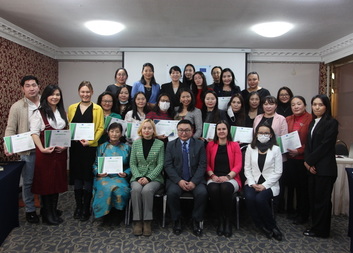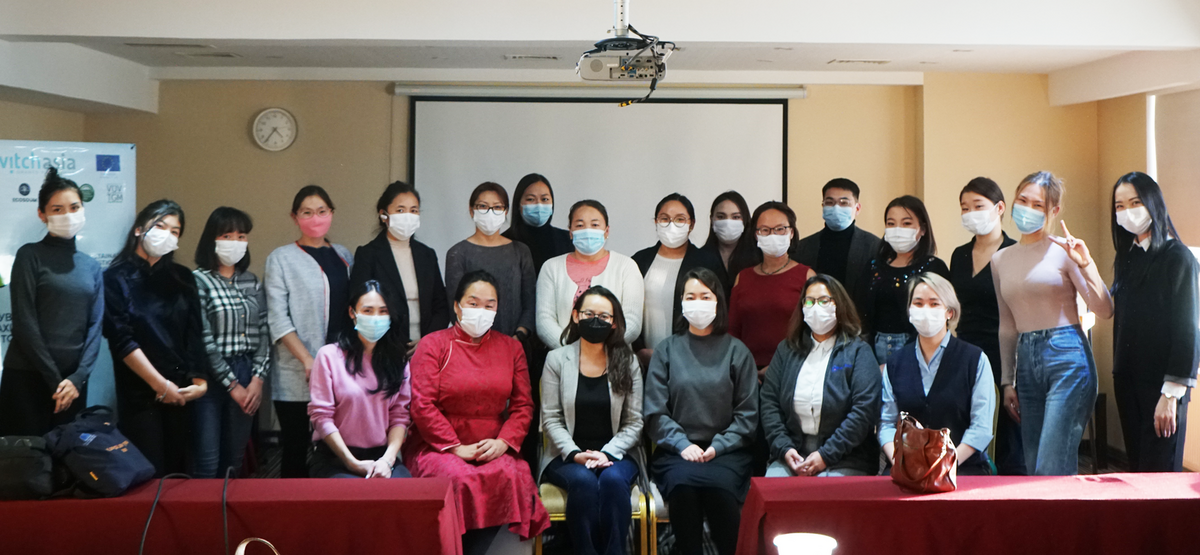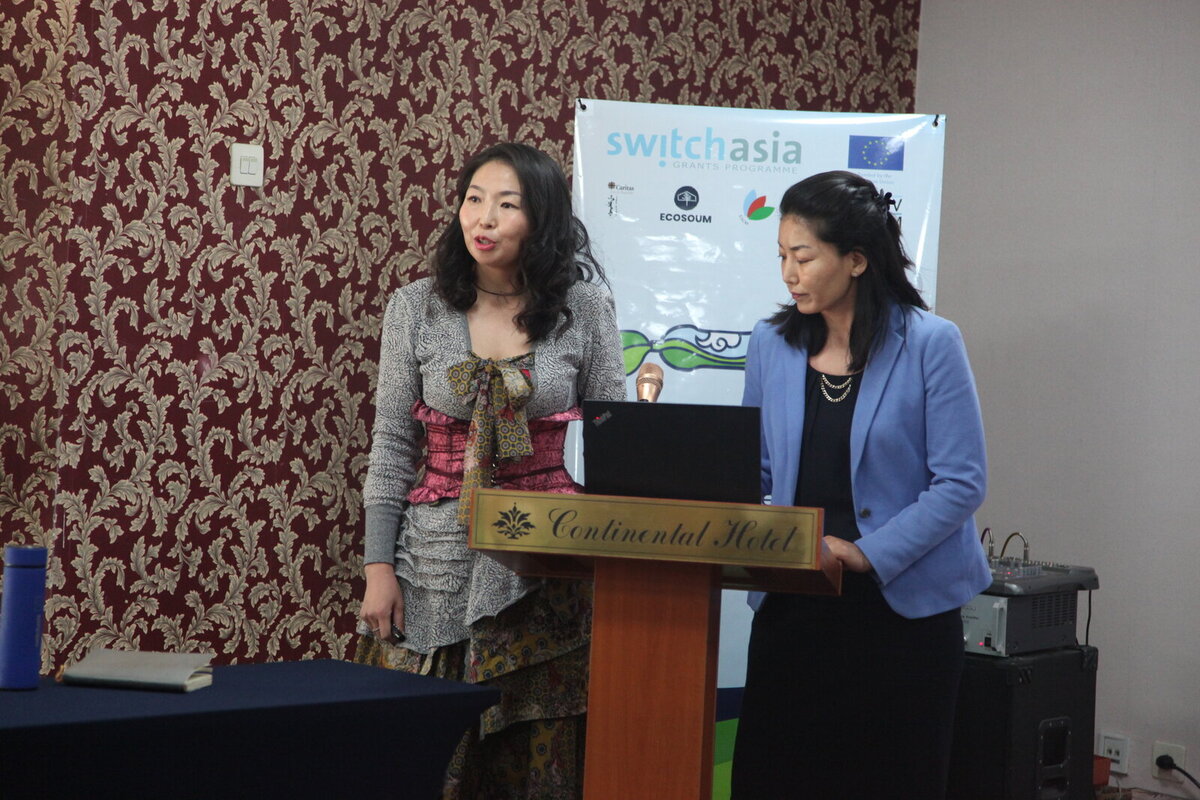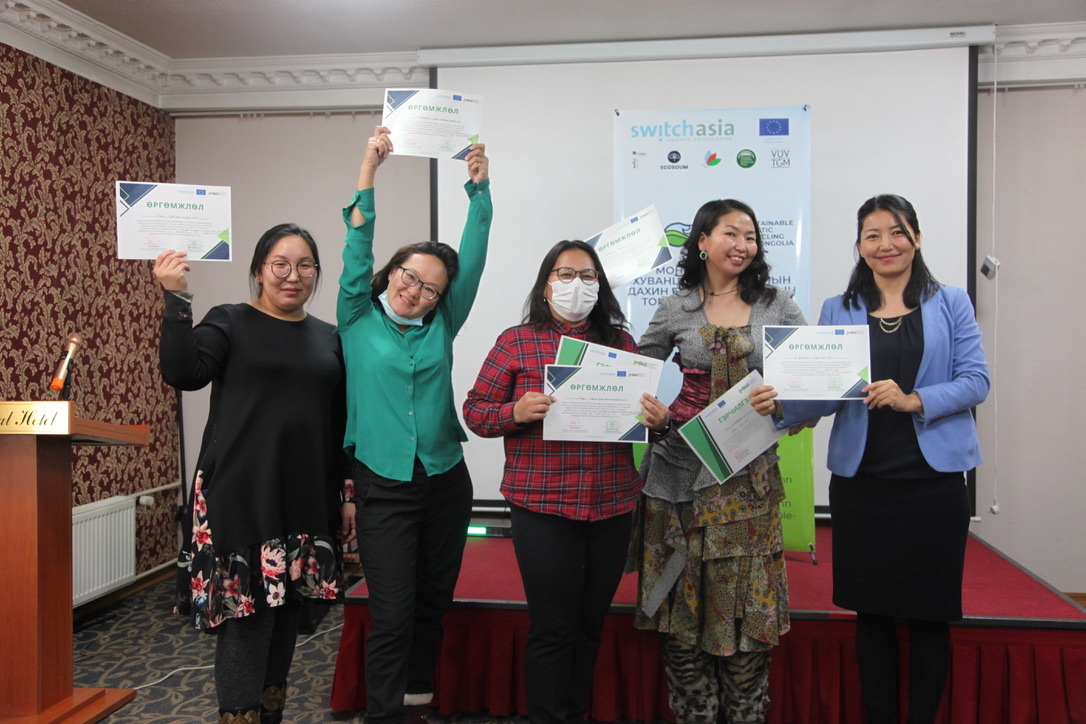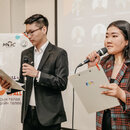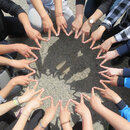Plastic materials have become an essential part of our everyday lives. They are cheap and incredibly versatile, but these qualities have also made plastics a serious environmental issue. That is why the Caritas Czech Republic in Mongolia, together with its partners, is helping to reduce the harmful effects of plastics on the environment and supporting local entrepreneurs in the recycling sector.
Training local organizations
We produce over 380 million tons of plastics every year, and according to some reports, up to 50% of it is for single-use purposes - we only use it for a few seconds, but it remains on the planet for at least several hundred years.
Mongolia in particular is struggling with excessive plastic waste and the Caritas Czech Republic is helping locals tackle the problem through its Sustainable Plastic Recycling in Mongolia project funded by the European Union’s SWITCH-Asia programme.
One of the ways we help in Mongolia is by training local civil society organizations that are conscious about plastic waste management issues and helping them build capacity and become more professional.
At our latest training programme “CSOs for Change” held on November 6, 2021 and February 11, 2022 in Ulaanbaatar, we focused on improving the skills of local organisations together with the NGO Mongolian Sustainable Development Bridge NGO.
“The training was great and I learned a lot. Our “Tuvshin Saikhan Munkh” NGO is approached by local people who want to get information and advice on waste management and to establish a collection point to receive sorted waste or a collection center in their local provinces. Thanks to the training programme, I can now share the new knowledge and information with these people,” says one of the participants of our training programme, O.Lkhagvasuren, Executive Director of Tuvshin Saikhan Munkh NGO.
The programme aimed at improving skills for carrying out key functions, solving problems, defining and achieving objectives for civil society organisations in the waste management sector. Also, it focused on enhancing the technical and managerial capacity of the organisations. The capacity-building training consisted of 7 training sessions in 3 packages (Civil society organisations in waste management, project management, and advocacy and communication strategies) with the training topics defined based on the “Training and Learning Needs Assessment” developed by the project team.
“We are also happy that the training provided theoretical information and proposed many solutions to solve problems we face in our work in the waste management sector”, added O.Lkhagvasuren.
Waste management project proposals will be implemented after the training
As part of our training programme, we also launched a micro-project competition on the topic of waste management among the participants. We received a total of 9 project proposals and participants pitched their project ideas and plans on 11 February. Finally, three project proposals were selected by the Evaluation Committee, which consisted of representatives from the European Union Delegation in Mongolia, Development Solutions NGO, Mongolian Sustainable Development Bridge NGO and Caritas Czech Republic in Mongolia.
The three selected projects are as follows:
- “Facilitating sorting and transportation of households waste in apartments” project
- “Treasure owners” project
- “Placing collection points for sorted waste in public green areas and running it appropriately” project
“We are so excited that our “Facilitating sorting and transportation of household waste in apartment” project was selected for the grant. The project proposal was written by Uyanga, representative of Clean Environment - Eco solutions NGO, Amudarya, representative of Tsartsaa Nogoon NGO and myself, Batzul, representing Food Safety Experts Association. The main activity of this micro-project is to organise a training on sorting waste at home for households, collect the sorted waste at the Apartment Owners’ Association (AOA) of the apartment, transport the sorted waste through Tsartaa Nogoon NGO and deliver it to the appropriate collection points,” shares Batzul G., one of the winners of the competition.
As Batzul G. adds, The income of selling the separated waste to recyclers is then used for the Apartment Owners’ Association's activities, such as cleaning and repairing the apartment. “We are already carrying out this work in our residential apartments and at the Apartment Owners’ Association, and we plan to develop this as a pilot project and expand it to other buildings and Apartment Owners’ Associations in the future. The CSOs for Change training program provided me with a lot of useful information on how to properly manage an NGO, ensure its sustainable activities and write a project. I'm also very happy to have friends with the same goals and partners to work with in the future,” concludes Batzul G.
The winners were selected based on several criteria, namely the viability of their proposals, sustainability, and budgeting. The winning teams will implement their projects with the awarded grants until the end of May 2022. The small projects will be monitored by the project team.

